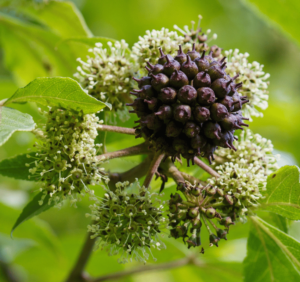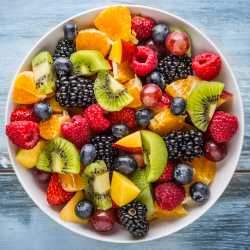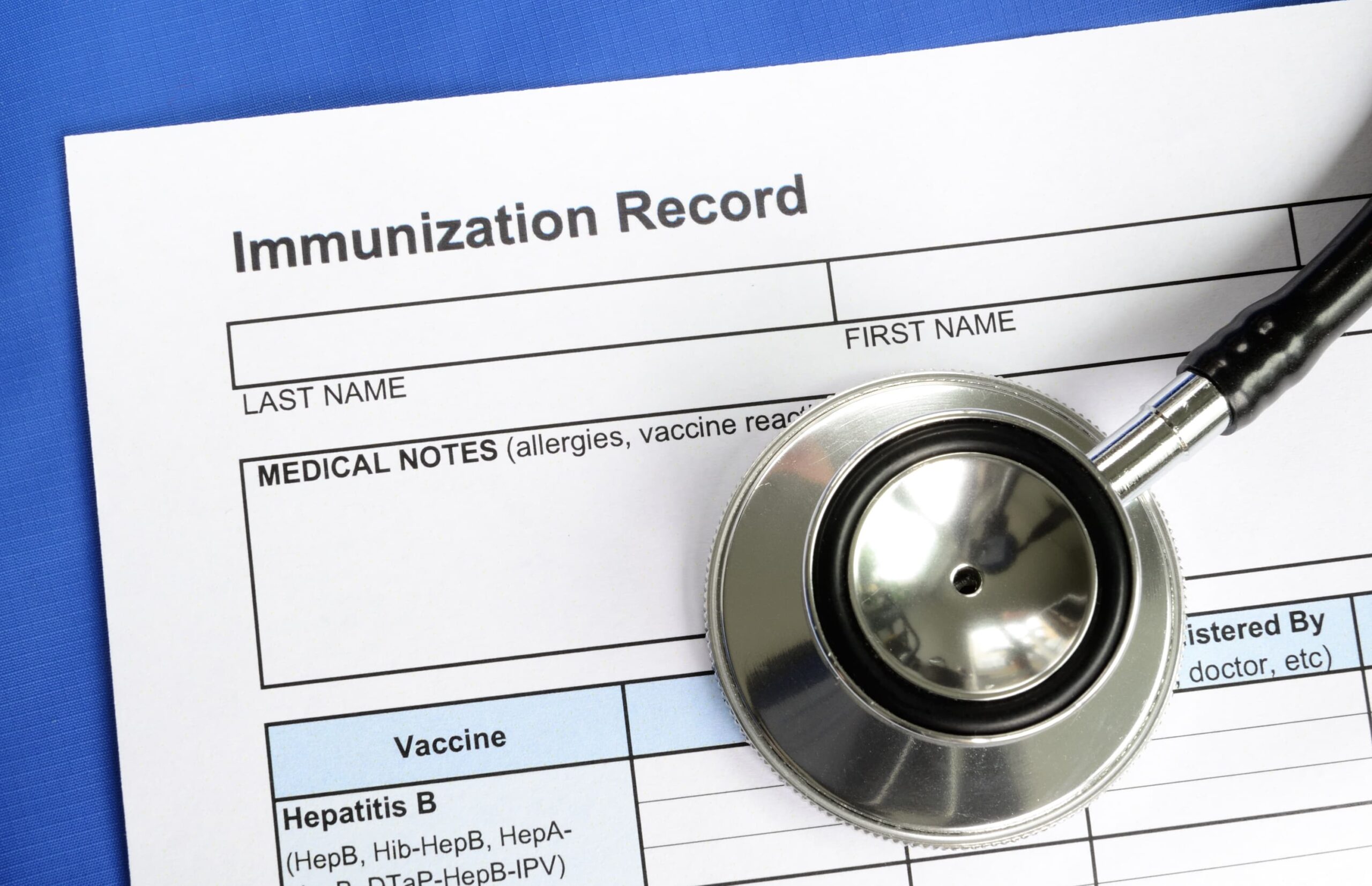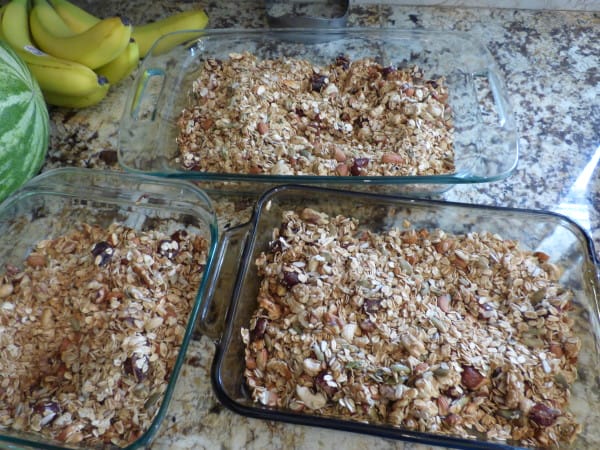The post-viral recovery period is an important time to focus on rebuilding your body’s strength and boosting your immune health. This article shares a nutritional strategy designed to help your body recuperate after a cold or flu, highlighting foods that should be prioritized for their immune-boosting and strength-replenishing properties as well as foods to avoid.
Understanding Your Post-Illness Nutritional Needs
The aftermath of a cold or flu can leave your body feeling a little depleted and fatigued. You may still have a residual cough or sniffle for several days or even weeks. During this period, the focus should be on foods that not only nourish the body but also enhance immune resilience and aid in the rebuilding of strength.
Nutrients That Promote Recovery From Illness
It’s important to focus on recovery even after the acute symptoms of a cold have begun to subside. A nutrient dense diet is foundational to maintain good health, but post illness recovery may be a time when additional supplementation is needed. Whether you consume essential nutrients through your diet or supplementation to ensure sufficient intake, they can benefit your body in regaining vitality post illness.
1. Protein
Protein is fundamental because it provides the essential amino acids that serve as building blocks for the body’s cellular repair and growth processes as well as for the production of antibodies and immune cells (1). Red meat, chicken, fish, tofu, and legumes are excellent sources of high-quality protein that can help in muscle recovery and immune system support.
2. Vitamin C
Research shows that taking Vitamin C at the first sign of a cold can shorten the duration of the cold (2).
Don’t worry about “missing the window of opportunity.” Even if you don’t begin increasing your intake until closer to the end of a cold or flu, it is still helpful for increasing white blood cell counts (3) – which are needed for immune function – and mopping up free radicals released during the viral process (4).
Additionally, if you’ve been taking tylenol to manage symptoms, vitamin C may be helpful to replenish glutathione levels in the body, which are depleted by acetaminophen (the active ingredient in tylenol).
Fruits like oranges, kiwis, and strawberries and colorful vegetables, such as bell peppers, broccoli, and spinach, are great sources of vitamin C.
3. Omega-3 Fatty Acids
Foods rich in Omega-3 fatty acids are especially important during recovery, as they support the body’s innate ability to regulate inflammation levels (5). Most Americans don’t consume enough Omega-3 (6), and this can be especially true during times of illness when we may have a reduced appetite. Omega-3s aid in the overall recovery process, helping the immune system return to its normal state more efficiently (7).
Food sources of Omega-3 include fatty fish like salmon, mackerel, and sardines, flaxseeds, chia seeds, and walnuts. Supplementation is an effective way to ensure sufficient intake.
4. Probiotics and Prebiotics
Approximately 70-80 percent of the body’s immune cells are located in the gut (8). Probiotics are beneficial for restoring diversity in the gut (9), which is especially relevant if the gut has been compromised during illness or due to antibiotic use.
Probiotics are the “good bacteria” found in foods such as yogurt, kefir, and sauerkraut. When we consume these foods, we are introducing beneficial bacteria to the gut. Probiotics can also be consumed in supplement form, which allows us to consume specific probiotic strains.
Prebiotics are found in foods like bananas, apples, oats, onions, and garlic. Although your body doesn’t break down prebiotics, the good bacteria in your gut do! Think of prebiotics as food for the bacteria in your gut – it keeps them happy and proliferating. Including prebiotic foods in your diet post illness can help restore the balance of gut flora.
To learn more about probiotics, read: The Vast Health Benefits Of Probiotics
5. Zinc
Zinc is particularly helpful during the acute and post-illness recovery phase due to its significant role in the immune system. It’s essential for the development and function of immune cells, and it helps the body mount an effective defense against pathogens (10). Zinc also has antioxidant properties (10), which can help in reducing any residual inflammation that may be lingering post-viral infection.
Foods rich in zinc include shellfish, seeds, beef, and turkey.
For more on the benefits of zinc, read: Benefits of Zinc for Kids (And Grown-Ups)
A Note About Hydration and Electrolytes
Staying hydrated is essential during illness and recovery, as the body loses fluids through fever, sweating, and increased respiratory rate (11). Adequate hydration aids in detoxification, supports immune function, and helps in maintaining blood volume and circulation (12). Electrolytes like sodium, potassium, magnesium, and calcium play a key role in maintaining fluid balance, nerve function, and muscle contraction (13). Consuming electrolyte-rich beverages like coconut water, broth, and my homemade electrolyte drink can help replenish these essential dietary components.
To learn more about healthy eating, read: The Basics Of Anti-Inflammatory Eating For The Whole Family
Herbs That Rebuild Health Post Illness
To encourage a full recovery after an illness, there are some herbs you can turn to for support.
 1. Adaptogenic Herbs
1. Adaptogenic Herbs
Adaptogenic herbs rhodiola and ginseng are found in our formula Adrenal Me This™ and they support healthy energy levels and help with occasional fatigue and stress.
Eleuthero, ginseng, and ginkgo, found in Adrenal & Focus™, support the body in recovering energy after the stress of a cold by enhancing stress resilience and boosting energy levels.
2. Medicinal Mushrooms
Medicinal mushrooms, including Turkey Tail, Reishi and Lion’s Mane, help the immune system find balance and support a healthy gut microbiome. Mothers Immunity™ is our doctor formulated blend of 14 mushrooms rich in immune modulating beta glucans (available as a liquid or capsule).
3. Nutritive Herbs
Nutritive herbs, such as moringa and nettles, provide a rich source of vitamins and minerals, supporting cellular health and vitality through their comprehensive nutrient profiles. Nature’s Nutrients™ is our aptly named glycerite full of plant powered nutrients. Our Superfood Red Tea – containing nettle, oatstraw, moringa, and hibiscus – is a delicious way to increase your nutrient intake and hydration and get back to feeling like your usual energetic self.
Foods To Avoid When Recovering From Illness
Some foods may increase inflammation or suppress the immune function, and therefore are best avoided when recovering from illness. Since your appetite may not be back to normal immediately after an illness, it’s important to consume nutrient dense options rather than filling up on processed foods.
1. Sugary Or Processed Foods
Sugary foods can suppress your immune system (16) and processed foods generally offer little nutritional value. High sugar foods disrupt the balance of gut bacteria (17) because “bad bacteria” thrive on a high sugar diet. We need our gut flora to be optimally balanced for a strong and healthy immune system. Focus on natural sweets like vitamin rich fruit, and consider adding honey to your tea to satisfy your sweet tooth while soothing your throat.
2. Dairy Products
For some people, dairy can increase mucus production and exacerbate respiratory symptoms. It’s advisable to monitor how your body responds to dairy during recovery and reduce intake if you notice an increase in congestion or mucus. This does not apply to infants who should still consume breastmilk and formula even when they are sick.
Summary
When recovering from a cold or flu, focusing on nutrition may help rebuild strength and boost immunity. Protein-rich foods can aid in tissue repair, while Vitamin C-rich fruits and vegetables, foods rich in Omega-3 fatty acids and zinc-rich foods can encourage our immune systems to stay healthy and support inflammation regulation. Probiotics and prebiotics are vital for gut health, which significantly impacts immunity. Staying hydrated and maintaining electrolyte balance is an important consideration both during the acute phase of illness and the recovery phase. Avoid sugary or processed foods and dairy as they can exacerbate symptoms. Integrating specific herbs may also provide immune support and assist with symptom management. This nutritional approach supports full recovery and may strengthen the immune system.
References:
- Wang, X., Yu, Z., Zhou, S., Shen, S., & Chen, W. (2022). The Effect of a Compound Protein on Wound Healing and Nutritional Status. Evidence-based complementary and alternative medicine : eCAM, 2022, 4231516. https://doi.org/10.1155/2022/4231516
- Bucher, A., & White, N. (2016). Vitamin C in the Prevention and Treatment of the Common Cold. American journal of lifestyle medicine, 10(3), 181–183. https://doi.org/10.1177/1559827616629092
- van Gorkom, G. N. Y., Klein Wolterink, R. G. J., Van Elssen, C. H. M. J., Wieten, L., Germeraad, W. T. V., & Bos, G. M. J. (2018). Influence of Vitamin C on Lymphocytes: An Overview. Antioxidants (Basel, Switzerland), 7(3), 41. https://doi.org/10.3390/antiox7030041
- Wu J. (2020). Tackle the free radicals damage in COVID-19. Nitric oxide : biology and chemistry, 102, 39–41. https://doi.org/10.1016/j.niox.2020.06.002
- Calder P. C. (2010). Omega-3 fatty acids and inflammatory processes. Nutrients, 2(3), 355–374. https://doi.org/10.3390/nu2030355
- Papanikolaou, Y., Brooks, J., Reider, C., & Fulgoni, V. L., 3rd (2014). U.S. adults are not meeting recommended levels for fish and omega-3 fatty acid intake: results of an analysis using observational data from NHANES 2003-2008. Nutrition journal, 13, 31. https://doi.org/10.1186/1475-2891-13-31
- Gutiérrez, S., Svahn, S. L., & Johansson, M. E. (2019). Effects of Omega-3 Fatty Acids on Immune Cells. International journal of molecular sciences, 20(20), 5028. https://doi.org/10.3390/ijms20205028
- Wiertsema, S. P., van Bergenhenegouwen, J., Garssen, J., & Knippels, L. M. J. (2021). The Interplay between the Gut Microbiome and the Immune System in the Context of Infectious Diseases throughout Life and the Role of Nutrition in Optimizing Treatment Strategies. Nutrients, 13(3), 886. https://doi.org/10.3390/nu13030886
- Grazul, H., Kanda, L. L., & Gondek, D. (2016). Impact of probiotic supplements on microbiome diversity following antibiotic treatment of mice. Gut microbes, 7(2), 101–114. https://doi.org/10.1080/19490976.2016.1138197
- Prasad A. S. (2008). Zinc in human health: effect of zinc on immune cells. Molecular medicine (Cambridge, Mass.), 14(5-6), 353–357. https://doi.org/10.2119/2008-00033.Prasad
- Taylor K, Jones EB. Adult Dehydration. [Updated 2022 Oct 3]. In: StatPearls [Internet]. Treasure Island (FL): StatPearls Publishing; 2024 Jan-. Available from: https://www.ncbi.nlm.nih.gov/books/NBK555956/
- Liska, D., Mah, E., Brisbois, T., Barrios, P. L., Baker, L. B., & Spriet, L. L. (2019). Narrative Review of Hydration and Selected Health Outcomes in the General Population. Nutrients, 11(1), 70. https://doi.org/10.3390/nu11010070
- Shrimanker, I., & Bhattarai, S. (2023). Electrolytes. In StatPearls. StatPearls Publishing.
- Isbill, J., Kandiah, J., & Kružliaková, N. (2020). Opportunities for Health Promotion: Highlighting Herbs and Spices to Improve Immune Support and Well-being. Integrative medicine (Encinitas, Calif.), 19(5), 30–42.
- Slippery Elm | Memorial Sloan Kettering Cancer Center. (2022, June 30). Www.mskcc.org. https://www.mskcc.org/cancer-care/integrative-medicine/herbs/slippery-elm
- Shomali, N., Mahmoudi, J., Mahmoodpoor, A., Zamiri, R. E., Akbari, M., Xu, H., & Shotorbani, S. S. (2021). Harmful effects of high amounts of glucose on the immune system: An updated review. Biotechnology and applied biochemistry, 68(2), 404–410. https://doi.org/10.1002/bab.1938
- Garcia, K., Ferreira, G., Reis, F., & Viana, S. (2022). Impact of Dietary Sugars on Gut Microbiota and Metabolic Health. Diabetology, 3(4), 549–560. https://doi.org/10.3390/diabetology3040042









One Comment